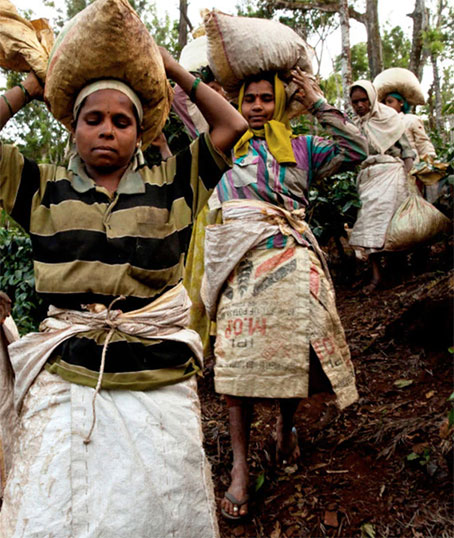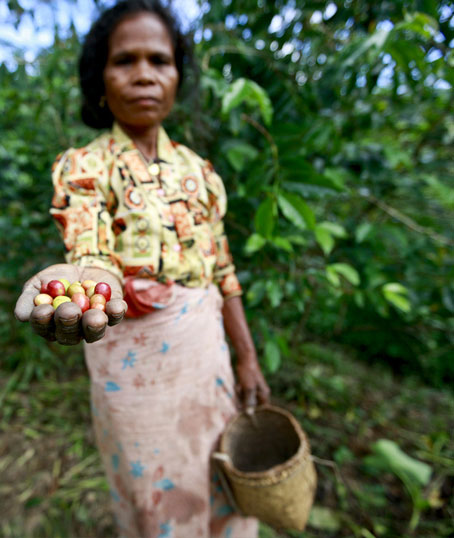What does it mean for a coffee to be "Fair Trade"?

Looking at a coffee package, beyond its brand or the composition of its blend, the eye usually stops in a series of certifications. What is the notorious "Fair Trade" certification?
At a time when the coffee audience is well informed and has views and requirements for the coffee that end in their cup, the world coffee market has clearly changed. Every coffee bean is scrutinized before it reaches our mug, and hides thousands of hours of work around the world. One of the certifications, which aspires to ensure that coffee producers are paid for their product, is certified to ensure that coffee is "Fair Trade" coffee.
 What is Fairtrade Coffee?
What is Fairtrade Coffee?
Fair Trade Coffee is a coffee produced in accordance with international fair trade standards, that is, according to a set of regulations dealing with transparency, respect for producers and sustainable development. Simply put, this is a set of rules designed to ensure that producers are rewarded for their product and that their working conditions are dignified, something particularly important, since a significant amount of internationally traded coffee is produced in growing Countries.
How did Fair Trade Coffee started?
Previously, coffee prices were set by the relevant International Organization, in consultation with the United Nations. The international agreements provided for the deactivation of the agreements in the event of reduced production and increased demand and triggering in the event of prices falling too low in an attempt to guarantee producers' income.
Fair Trade certification was introduced in the late 1980s when increased coffee production came to overcome demand as a result of price shocks. The idea came from the Netherlands, taking its original name, "Max Havelaar," from a character of Dutch literature that claimed the exploitation of coffee producers by the Dutch colonizers. The purpose of the organization was to certify products that ensured decent living conditions and guaranteed income for their producers.
The coffee crisis in the early 1990s, which has redeemed coffee prices, has made the need for "Fair Trade" coffee more imperative, so the organizations concerned have washed and stabilized their position on the world market in order to we are slowly getting to today.
 How does a coffee gets Fair Trade Certification?
How does a coffee gets Fair Trade Certification?
Responsible for the certification of the relevant products, and of course coffee, is the relevant global organization, called Fairtrade International, and cooperates with the respective national organizations of each country. The specifications for the inclusion of a coffee plant in the relevant network vary depending on whether it is a small farm or a larger plantation that employs workers. In the first case, the standards relate to the democracy and transparency, the participation of producers in decisions, the prices of their raw material and many other factors that ensure dignity, satisfactory remuneration and sustainable development. with the protection of the environment. In the case of larger plantations, wages, working conditions, workers' unionism are strictly controlled, and of course both forced labor and child labor are forbidden.
In order to qualify a coffee as a Fair Trade, it must meet all the above specifications, which are controlled in cooperation with the relevant national agency with the International Trade Organization.
Are there any controversies in the Fair Trade?
Although the idea behind the creation of certification is morally correct and the organization's operation is seamless, there are criticisms of Fair Trade. Fair Trade critics point out first of all that the whole idea of certification has almost become a monopoly with what it can mean, and that while the idea began to protect small coffee makers it has now grown into large plantations, something that despite the positive that it can have as a movement, has "distorted" the original concept of the idea. Still, it should not be overlooked the fact that in some countries there may be fake products, but also the fact that there are companies that raise their products' costs too much by taking advantage of this certification, without these superpowers returning to producers.
Does Fairtrade Coffe taste better?
Fair Trade Certification defines primarily a grid of rules that have to do with the working conditions surrounding coffee production and is not directly related to its quality. However, it is true that most Fair Trade coffees are particularly qualitative, as the steps taken throughout the chain, from cultivation and export to packaging, follow high quality standards. If you want to try Quality Fair Trade Coffees, you can choose Bio Puro, which has grains from Peru and Honduras, or Sant Eustachio, roasted in Rome, but its owners are looking for their delicious Fair Trade coffees from all over the world.
Our choices when it comes to coffee are really inexhaustible! It is important to always remember how many people needed to work hard to enjoy our coffee, but also to be sure that our cup always has quality coffee - the coffee we deserve!










